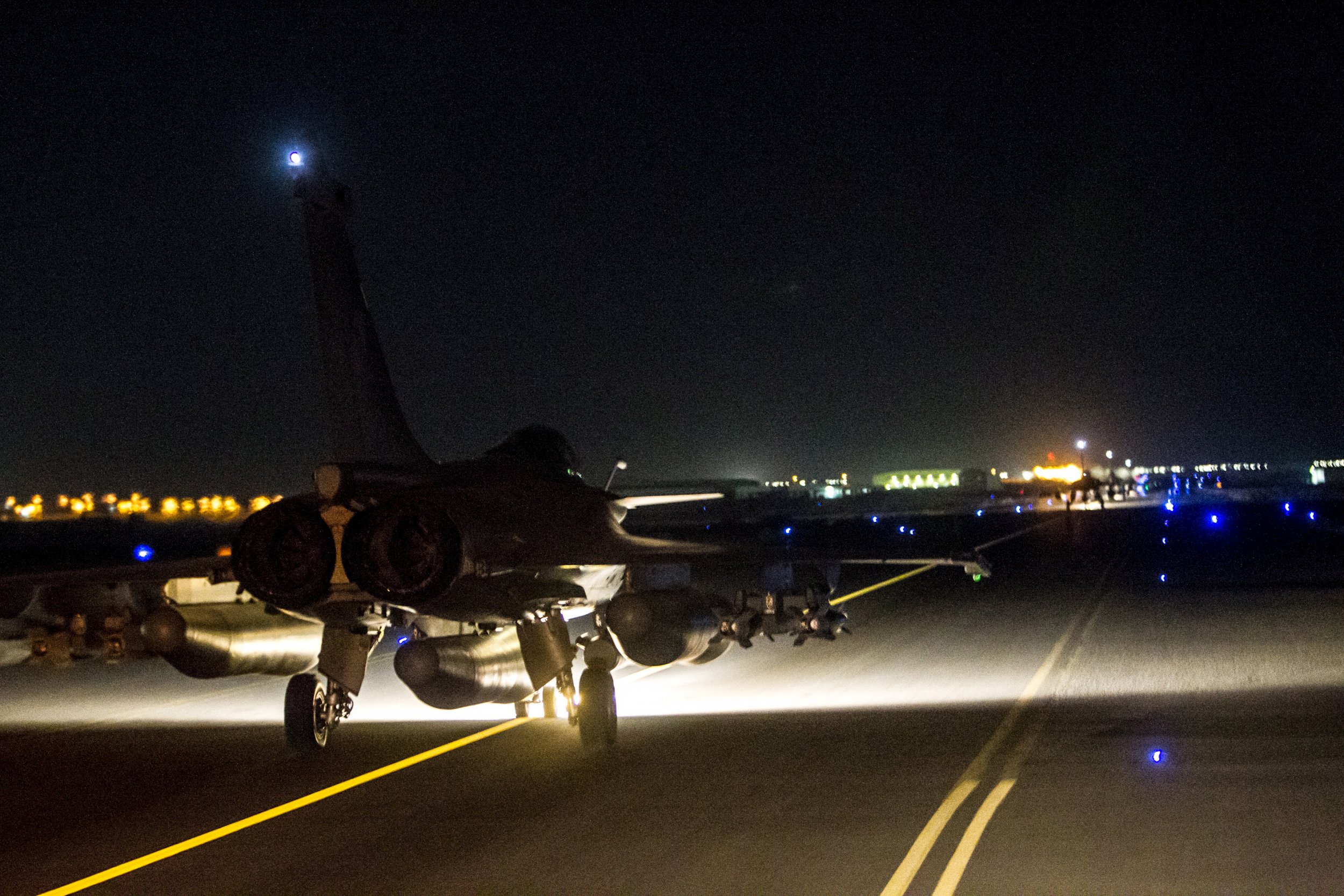
It is not enough to carry out airstrikes against ISIS and cut its source of funding. What is required is evidence that an alternative model of governance conceived and delivered by local Syrians and Iraqis is possible, with sustained international support.
The instinctive response to the Paris attacks is to intensify the air campaign against the Islamic State militant group's (ISIS) headquarters in Raqqa, which France has already begun in earnest. However, if the West really wants to undermine the long-term threat that ISIS poses to the populations in the Middle East and Europe, then it needs to extend efforts beyond an air-based military solution to one that goes to the heart of the issue in both regions: governance.
The West needs to better understand not only the conditions that gave rise to ISIS and its antecedents in Iraq and Syria, but also what sustains the group and allows it hold and govern territory, generate revenue, recruit from local communities, appeal to disenfranchised Europeans and plan and execute increasingly complex and sophisticated attacks.
Although ISIS is widely seen as a death cult, it has, in a similar vein to the Taliban, brought with it a brutal and ruthless order to the areas it governs. It has, in effect, and in record time, established a government with ministries that serve the population and deliver services. It has worked with local communities to ensure that basic services continue, shops carry products, taxes are collected and law and order—however brutally administered—is maintained. It is very difficult to imagine an organisation that could develop such governing capacity in a relatively short space of time, especially when the international community has spent decades trying to build institutional capacity in the region. Moreover, it has begun a state-building project—a project that has eluded both regional governments and the international community since 2003− in Iraq, Libya and Yemen.
It has managed to do so by drawing on the structures of the Baath party, among other things, and tapping into strongly-felt local grievances, notably political exclusion, primarily in Iraq and Syria. In doing so, ISIS has presented itself as the only alternative to the existing order, which holds appeal to those permanently outside the political process. While the West abhors ISIS, it offers marginalized Iraqi Sunnis an alternative to "Shia-dominated" Baghdad, dispossessed Syrians an alternative to President Bashar al-Assad and his barrel bombs, and European discontents the prospect of living in the "caliphate." In all, somewhat perversely, it offers both hope and certainty, which is in very short supply elsewhere in the region. And this is where the West should focus its attention.
The only way to undermine ISIS in Syria and Iraq is to make sure that those living under its control can see credible and durable alternatives within their reach. It is important to bear in mind that ISIS conquered its territory and although the population had little choice other than to yield, in time, it may well begin to resist. In other words, the challenge to ISIS needs to come from within—not its leadership, strategists, ideologues or foreign fighters, but from the population it governs. The ISIS leadership has been credited with understanding local community relations and successfully navigating complex tribal networks, often through brutal means, to win over its population.
However, its brutality may carry the seeds of its own destruction and presents the West and its regional partners with an opportunity. They need to get better at reaching out to these key networks and ensuring local communities that their long-term interests will be better served by resisting ISIS and working with alternative political groups. Furthermore, if they are to resist joining ISIS, then Syrians and Iraqis who feel permanently disenfranchised from the political order or chaos in which they live also need to be presented with realistic alternatives. Of course, right now, there are none.
At best, Syrians in rebel-held areas who have established self-assembled governing structures aimed at serving local communities, notably in southern Syria and the Kurdish enclave of Rojava, offer alternatives to the ISIS-Assad dichotomy. Western governments should prioritize supporting local governance initiatives, as they will not only help Syrian communities endure the conflict, but could also reassure Syrians and Iraqis living under ISIS control that alternatives do exist.
Neil Quilliam is Acting Head of the Middle East and North Africa Programme at Chatham House, the Royal Institute of International Affairs, an independent policy institute based in London.
Uncommon Knowledge
Newsweek is committed to challenging conventional wisdom and finding connections in the search for common ground.
Newsweek is committed to challenging conventional wisdom and finding connections in the search for common ground.
About the writer
To read how Newsweek uses AI as a newsroom tool, Click here.








